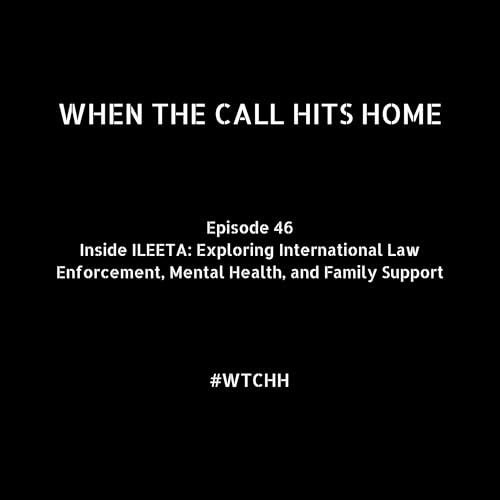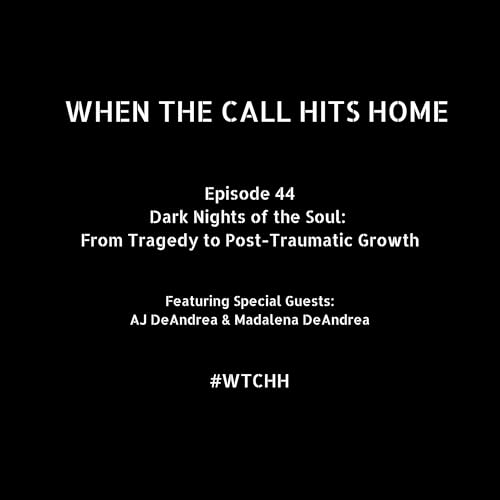Hosts:
Dr. Ashlee Gethner, LCSW – Child of a Police Officer
Jennifer Woosley Saylor, LPCC S – Child of a Police Officer
Guest:
Chief Deputy Justin Miller, Kenosha Sheriff’s Office
Episode Summary
In this heartfelt episode, Chief Deputy Justin Miller returns to talk with Ashlee and Jennifer about leadership, mental health, and breaking stigma in first responder communities. The conversation dives deeply into Justin's personal journey using EMDR (Eye Movement Desensitization and Reprocessing) therapy, how sharing vulnerability can transform departmental culture, and exciting news about their upcoming presentation at the International Law Enforcement Educators and Trainers Conference (ILEETA).
Key Topics & HighlightsLeadership & Vulnerability: Chief Deputy Miller emphasizes leading by example, sharing his own mental health journey, and the importance of vulnerability in building trust within his department.
EMDR Therapy: Ashlee and Jennifer discuss the impact of EMDR and how it’s not just for job-related trauma, but often for deeply personal experiences. Chief Deputy Miller shares his powerful story processing grief and trauma through EMDR, describing the emotional catharsis and lasting changes.
Breaking the Stigma: The group addresses common fears around mental health programs for first responders -especially the worries about confidentiality, losing a job, or being seen as weak. Chief Deputy Miller advocates open dialogue, personal storytelling, and changing the culture to make wellness "the norm."
Department Initiatives: Launching "neck up checkups"- annual mental health check-ins. High participation reflects growing trust and normalization of mental wellness.
Upcoming Conference: Chief Deputy Miller and Ashlee (Dr. G) will co-present at ILEETA, sharing their department’s model for clinical and administrative partnership in crisis response.
Bonus: "When The Call Hits Home" will be podcasting live throughout the week at the conference, expanding their reach to thousands of international law enforcement professionals.
Thank you for tuning in! Don't forget to subscribe, rate, and review "When The Call Hits Home" on your favorite podcast platforms!
Follow Us:
- Facebook: When The Call Hits Home Podcast
- Instagram: @whenthecallhitshome
- Whenthecallhitshome.com
---
This podcast does not contain medical / health advice. It is not intended to be a substitute for professional medical or mental health advice, diagnosis or treatment and should not be relied on as health or personal advice.
The information contained in this podcast is for general information purposes only. The information is provided by Training Velocity LLC and while we endeavour to keep the information up to date and correct, we make no representations or warranties of any kind, express or implied, about the completeness, accuracy, reliability, suitability or availability with respect to the Podcast or the information, products, services, or related graphics contained in the podcast for any purpose. Any reliance you place on such information is strictly at your own risk.
WE ARE NOT RESPONSIBLE NOR LIABLE FOR ANY ADVICE, COURSE OF TREATMENT, DIAGNOSIS OR ANY OTHER INFORMATION, SERVICES OR PRODUCTS THAT YOU OBTAIN THROUGH THIS PODCAST.
Always seek the advice of your physician or other qualified health care provider with any questions you may have regarding a medical condition or treatment and before undertaking a new health care regimen, and never disregard professional medical advice or delay in seeking it because of something you have heard on this podcast.
 2026/02/25不明
2026/02/25不明 45 分
45 分 57 分
57 分 2026/01/1430 分
2026/01/1430 分 26 分
26 分 22 分
22 分 33 分
33 分 38 分
38 分
